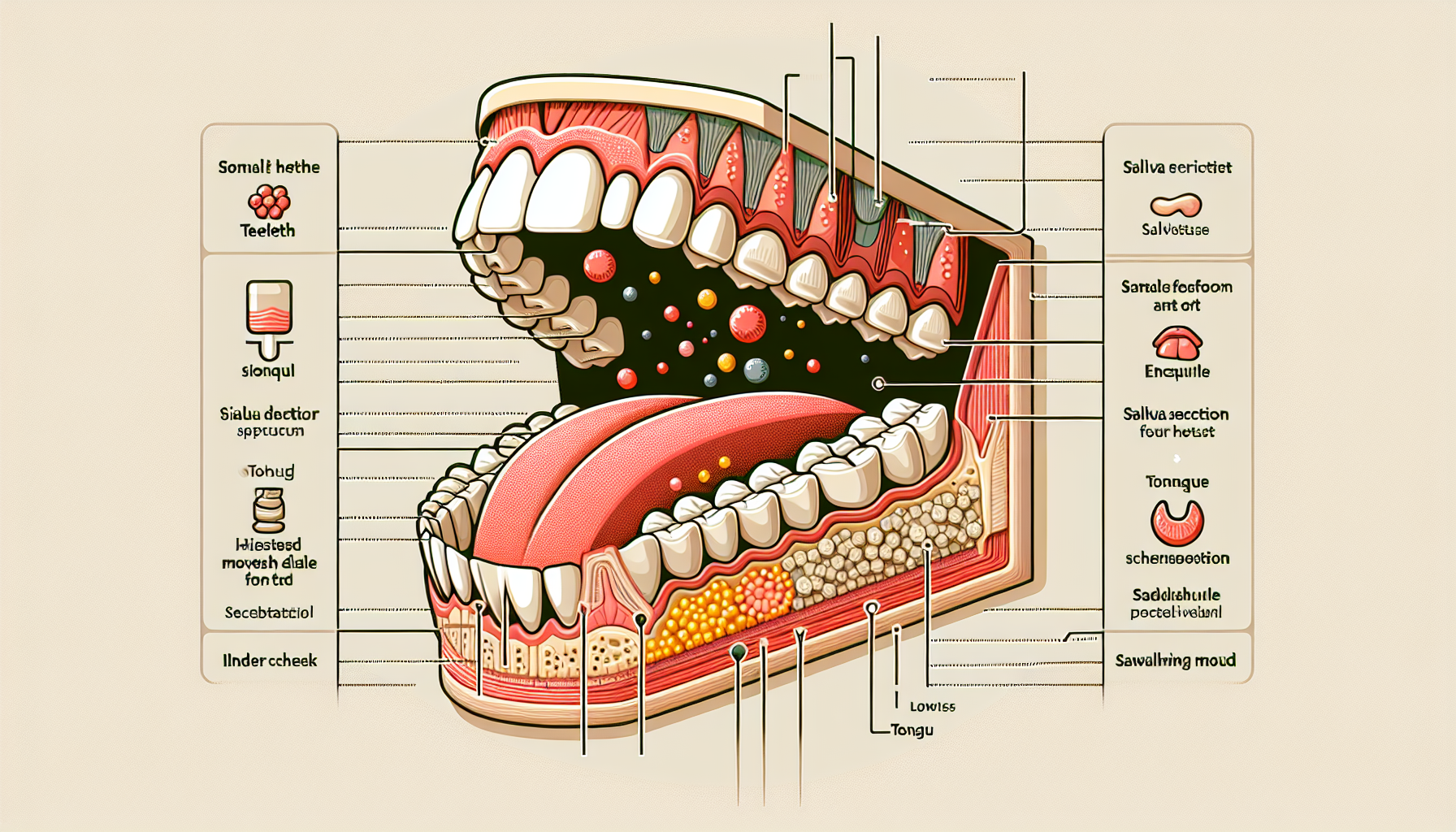Good health starts with good digestion, and good digestion begins the moment food enters your mouth. Mastication, commonly known as chewing, is the first step in the digestive process, and its importance cannot be overstated. This article delves into the critical role that mastication plays in overall digestive health and how it can impact various aspects of your well-being.
The Mechanics of Mastication
Mastication is not merely breaking down food into smaller pieces; it is a complex process that involves teeth, salivary glands, jaw muscles, and the brain. Chewing activates the salivary glands, which release saliva containing enzymes like amylase that begin the chemical breakdown of food, particularly carbohydrates. This enzymatic action is crucial for efficient digestion and nutrient absorption later in the digestive tract.
Moreover, the physical process of grinding food increases its surface area, making it easier for digestive enzymes to work effectively once the food reaches the stomach and intestines. Properly masticated food forms a well-lubricated bolus that can travel down the esophagus smoothly, reducing the risk of choking and esophageal irritation.
The Impact on Nutrient Absorption
The thoroughness of mastication can directly affect how well nutrients are extracted and absorbed from our food. Larger food particles are not broken down as effectively, which can lead to incomplete digestion and reduced nutrient uptake. This underscores the need for mindful eating and adequate chewing, especially when consuming nutrient-dense foods.
Mastication and Digestive Disorders
Improper chewing has been linked to various digestive disorders, such as dyspepsia and gastroesophageal reflux disease (GERD). By not chewing food adequately, the stomach must work harder to break down food, leading to discomfort and a variety of symptoms associated with these conditions. To explore more about the management of acid reflux through diet, consider reading Addressing Acid Reflux through Dietary Adjustments.
The Connection to Overall Health
The benefits of proper mastication extend beyond the digestive system. It has implications for weight management, as it can influence satiety and calorie intake. Slow and thorough chewing has been shown to reduce hunger and lead to a reduction in overall food consumption, aiding in weight management efforts. You can learn more about this by reading How Digestive Health Influences Weight Management.
The process of mastication also plays a role in maintaining oral health by stimulating the gums and promoting saliva production, which helps neutralize acids and wash away food particles. In addition, the act of chewing has been linked to cognitive health, as it can increase blood flow to the brain and may help improve memory and cognitive function.
Practical Tips for Improving Mastication
- Be Mindful: Pay attention to each bite, and resist the urge to eat hurriedly.
- Chew Thoroughly: Aim for 20-30 chews per bite to ensure food is properly ground.
- Eat Smaller Pieces: Cut food into smaller pieces to make it easier to chew.
- Practice Jaw Exercises: Strengthening jaw muscles can help improve your ability to chew, especially as you age.
- Address Dental Issues: Regular dental check-ups and addressing any dental pain or discomfort can aid in proper chewing.
The Role of Diet in Mastication
The texture and type of food we eat can affect how well we chew. Incorporating a variety of textures in your diet, from crunchy vegetables to tougher cuts of meat, can encourage thorough mastication and stimulate the digestive system. On the other hand, a diet heavy in soft or processed foods may lead to lazy chewing habits and diminished digestive function.
For a deeper understanding of how diet influences digestive health, consider the connection between specific dietary choices and conditions like celiac disease. Reading articles like Navigating the Complexities of Celiac Disease and Gluten Sensitivity can offer valuable insights.
Mastication and Digestive Health Resources
To further appreciate the significance of mastication in digestive health, here are a few niche resources that offer in-depth information:
- The Role of Saliva in Digestion – An academic article exploring the various functions of saliva in the digestive process.
- Mindful Eating as a Way to Improve Mastication – A study discussing the benefits of mindfulness in eating behavior and its impact on digestion.
- Impact of Chewing on Digestive Disorders – Research on how mastication affects common gastrointestinal issues.
The Broader Context of Digestive Health
Mastication is just one aspect of a much larger picture of digestive health. For a comprehensive understanding, consider exploring related topics on digestive wellness through Avix Health’s extensive article library, including the crucial role of Digestive Health in overall well-being.
In conclusion, mastication is a fundamental yet often overlooked component of digestive health. By focusing on the act of chewing, we can not only enhance the efficiency of our digestive system but also improve various aspects of our overall health. Mindfulness in eating, dietary choices, and addressing any oral health issues are key strategies for optimizing the mastication process. Remember, the journey to good health begins in your mouth.



